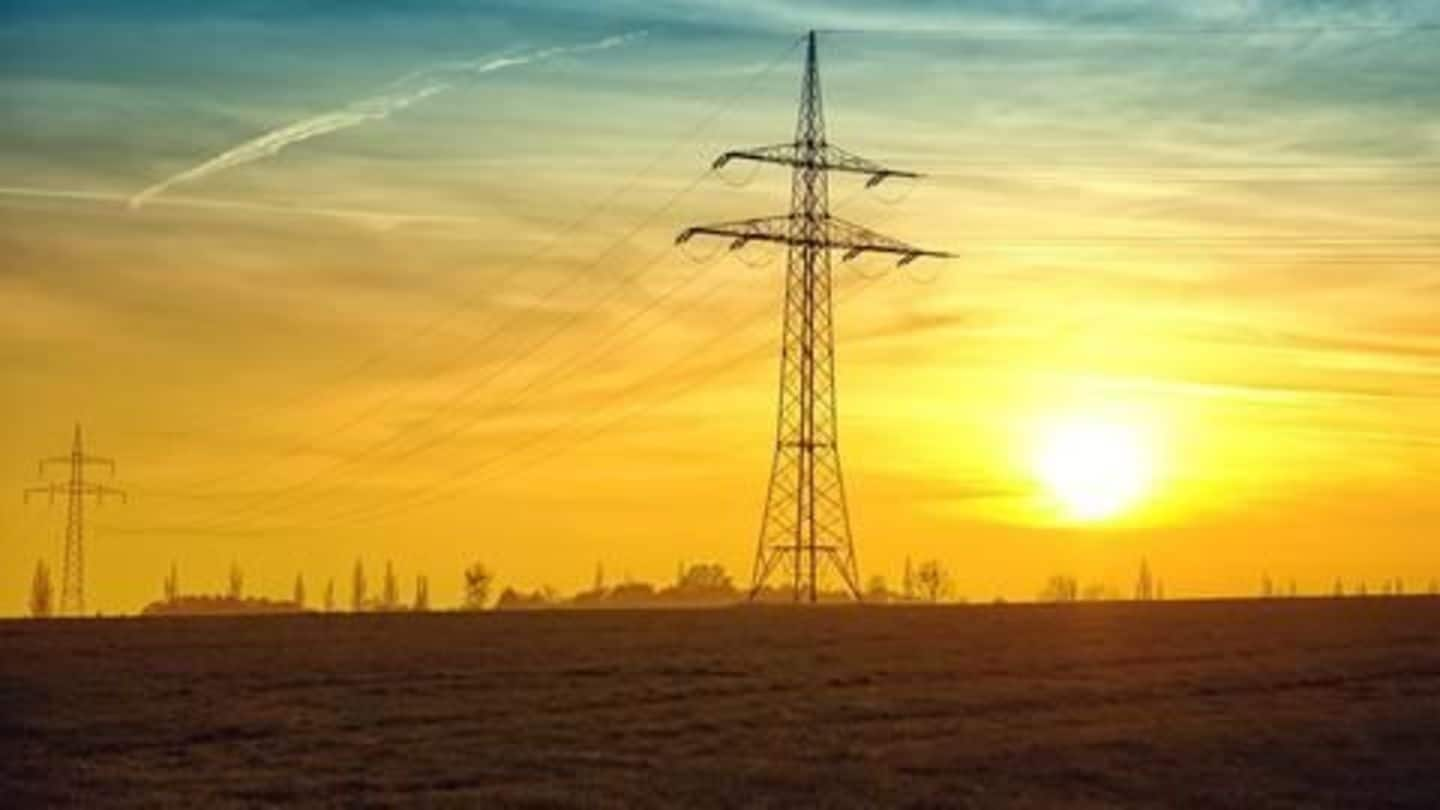
New developments point to positive transition in India's energy sector
What's the story
India recently became a net exporter of electricity, after a long period of power scarcity brought about by a number of policy and operational issues plaguing the electricity sector. Concerted efforts at finding solutions, including increasing efficiency and reducing corruption in the coal industry, pushed by the Union Power Ministry is said to have brought about a positive transformation in the sector.
Background
The Indian electricity sector
Despite being the third largest producer and fourth largest consumer of electricity, India is constantly affected by power crisis, negatively impacting growth. Electrification remains a distant dream for many, despite many promises and efforts by successive governments. While the government targets to institute 40% of non-fossil fuel generation capacity by 2030 under its Paris pledge, coal contributes to 60% of India's power generation.
Information
India becomes net electricity exporter
India for the first time has become a net exporter of electricity. Statement from the Power Ministry noted, "upcoming cross-border transmission with Nepal, Bangladesh and Myanmar would increase sales".
Problems
Issues plaguing the power sector
Power plants in India operate at low capacity because of coal shortage. While the government increased coal imports, dearth of natural gas stalled generation of 2,50,000 MW. Constraints in interstate transmission, along with lack of funds plaguing distribution companies, hindered electricity trading. Future planning revolving around the already overused hydro electricity sparked environmental concerns across the country.
Details
What has the government done?
The government has made efforts in rejuvenating the coal sector out of corruption, theft and inefficiency. Efforts have further been made towards making low cost power available for household and agricultural uses. In efforts to switch to renewable energy, the government has instituted subsidies and set obligations for states to meet. The UDAY scheme has been instituted to deal with distribution company debt.
Data
The UDAY Scheme
The Ujwal DISCOM Assurance Yojana (UDAY), attempts to reduce distribution company debt via transferring the debt to state governments. It allows state governments to take on up to 75% of company debt until September 2015. 22 states have so far been approved under the scheme.
Drawbacks
A lot more to be done
Provision of cheap electricity for agricultural uses, have resulted in a propensity to cultivate water-intensive crops like sugarcane and rice resulting in saline soil and depleting water table. Lax implementation on renewable power obligations have led state distribution companies to take these obligations lightly, creating a financially detrimental situation for clean power companies. Further, the UDAY scheme does not solve profitability issues plaguing companies.
Analysis
Getting to a well lit future
As India comes closer to solving its power crisis, over-reliance on fossil fuels, particularly coal, could undermine the state's efforts to tackle climate change. Expanding the powers of state regulators to monitor and penalize defaulter states could keep state obligations in check. 30 crore Indian citizens still do not have electricity despite the surplus, pointing to the need for integrated long term energy planning.